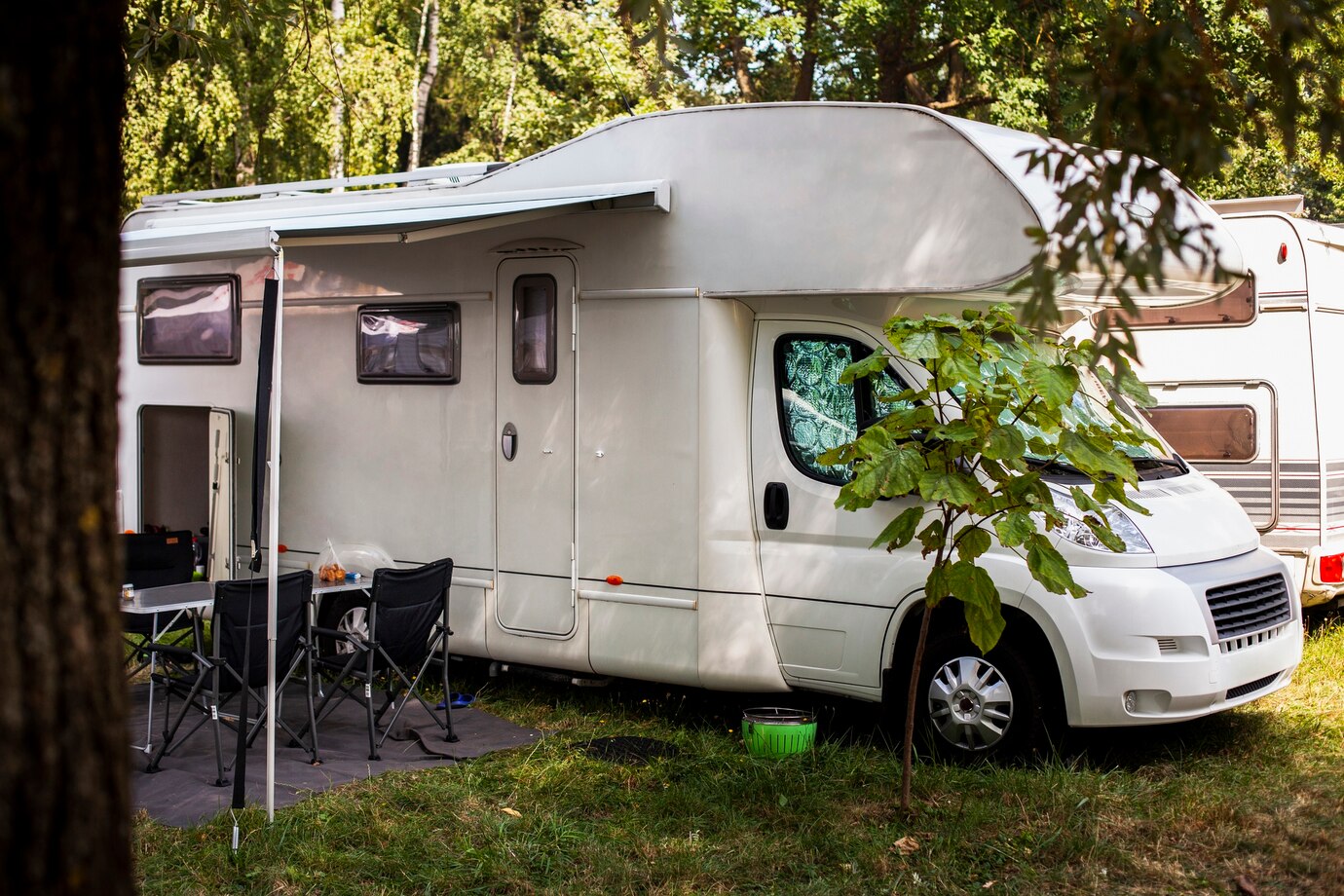Dreaming of full-time RV living? Discover the advantages and disadvantages, plus practical tips to kickstart your adventure.
Full-Time RV Living: Pros, Cons, and How to Get Started

Have you ever dreamed of living on the road? Many people are now choosing full-time RV living as their new lifestyle. It means making a recreational vehicle your home and traveling to different places. It sounds exciting, right? But just like everything else, there are pros and cons. If you are thinking about full-time RV living: pros, cons, and how to get started, this guide is for you.
What is Full-Time RV Living?
Full-time RV living means you live in a motor home, RV camper, or travel trailer all year long. You don’t have a house or apartment. Your home is your small RV, RV van, or camping trailer. You can park at campsites, RV parks, or even in nature.
Many people choose this life because it gives them freedom. But it also comes with some challenges.
Pros of Full-Time RV Living
1. Financial Benefits:
One of the biggest reasons people try full-time RV living is to save money (i.e., for financial benefits). Buying used RVs or a small RV can be cheaper than paying rent or a mortgage. You also save on utility bills.
2. Lifestyle Freedom:
Full-time RV living gives you the freedom to travel. You wake up to new places whenever you want. You can visit mountains, beaches, or forests (i.e., total lifestyle freedom). The road is yours!
3. Community and Connection:
Many RV camper parks and travel trailer sites have friendly communities. You meet people who share your love for adventure.
4. Personal Growth:
Living on the road teaches you new things. You learn to fix your RV camper. You also learn how to manage money and time better (it will improve personal growth).
5. The Weather:
You can move to places with better weather. Hate the cold? Just drive your RV van south for the winter!
6. Minimalist Lifestyle:
Full-time RV living means you carry only what you need. It helps you live a simple and clutter-free life (adapting to minimalist lifestyle).
Cons of Full-Time RV Living
1. Space and Comfort Limitations :
A small RV or RV Class B may feel cramped. There is less space for your things.
2. Maintenance and Repair Challenges:
Your motor home or RV camper needs regular repairs. You might face sudden breakdowns or tire problems.
3. Health and Hygiene Concerns:
Keeping clean is tough. You have to find places to shower, dump waste, and refill water.
4. Social and Emotional Challenges:
You might feel lonely. Staying connected with friends and family can be hard.
5. Financial and Logistical Challenges:
Even though it can be cheaper, there are costs. Gas, repairs, and campsite fees add up.
6. Lack of Routine:
Without a fixed schedule, some people find it hard to stay organized.
7. Unexpected Issues:
Bad weather, roadblocks, or engine troubles can surprise you anytime.
8. Cost:
Buying the best camper or travel RV is not cheap. Maintenance and fuel costs can also rise.
9. Connection to Friends and Family
You may miss important events because you are on the road. Staying close to family is hard.
How to Get Started with Full-Time RV Living
If you still feel excited about full-time RV living, here’s how you can start:
1. Choose the Right RV :
Pick the right type for your RV camper, motor home, RV trailer, or camping trailer. If you are new, look at used RVs or a small RV to start.
2. Budget Planning:
Plan your budget. Think about fuel, repairs, campsite fees, and food. Remember, full-time RV living is cheaper, but there are still costs.
3. Minimalize Your Stuff:
Sell or donate things you don’t need. A recreational vehicle has limited space.
4. Plan Your Route:
Decide where you want to go. Check for travel trailer campsites and RV camper parks along the way.
5. Stay Connected:
Get mobile internet. It helps you stay in touch with family and work online if needed.
5. Prepare for Repairs:
Learn basic RV maintenance. Keep tools handy. This helps avoid big problems later.
Conclusion
Full-time RV living: pros, cons, and how to get started is all about finding the right balance. It offers freedom, new experiences, and a minimalist lifestyle. But it also comes with space issues, maintenance needs, and emotional challenges.
If you love adventure, full-time RV living could be perfect for you. Do your research. Start with a used RV or a small RV. Plan your trip well. This exciting lifestyle might be the change you are looking for!
FAQs
-
1. Is full-time RV living expensive?
It depends. Buying a used RV or small RV saves money. But fuel, repairs, and campsite fees can add up. -
2. Can I work while doing full-time RV living?
Yes! Many people work online while living in a motor home or RV camper. -
3. What is the best RV for beginners?
A small RV, RV Class B, or travel trailer is good for beginners. It’s easier to drive and park. -
4. Is it safe to live full-time in an RV?
Yes, but always park in safe spots like RV camper parks or camping trailer sites. -
5. How do I stay connected with family while living in an RV?
Use mobile internet, video calls, and plan visits. It helps stay connected with friends and family.
